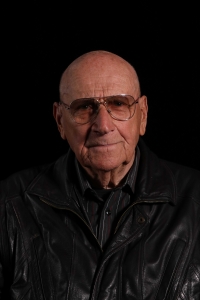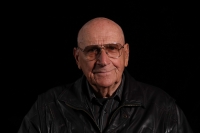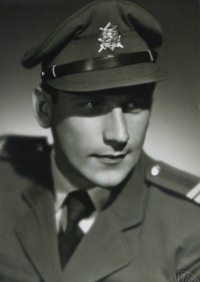They flew away to happiness and I was discharged from the army

Stáhnout obrázek
Miroslav Král was born April 4, 1929 in Prague-Libeň. His father worked as a driver and a conductor of electric railways, his mother was a housewife. The family moved to a new building in Vysočany in the 1930s, which is where Miroslav attended primary school. After finishing high school in 1943, he started studying to be a mechanic in the Aero Praha aviation undertaking; he completed the apprenticeship in 1946. From 1946 to 1948 he continued studying a two-year program at the Military vocational school of aircraft mechanics in Liberec. After that, in 1948, he started working as a mechanic with the 1st Transport Aviation Regiment in Prague-Kbely. According to his recollection, the same year two officers left the airport without authorization with a de Havilland DH.98 Mosquito airplane while he was on duty, which then had a negative impact on his personal assessment, resulting in him being discharged from the army several months later. He had troubles finding a job afterwards. He worked in the steelworks in Kladno, as a personal drive or as a driver in the Kovoslužba Praha company. Later on, he worked as a maintenance man in a computing company. He worked until his seventies. He has a son and a daughter from his two marriages.


